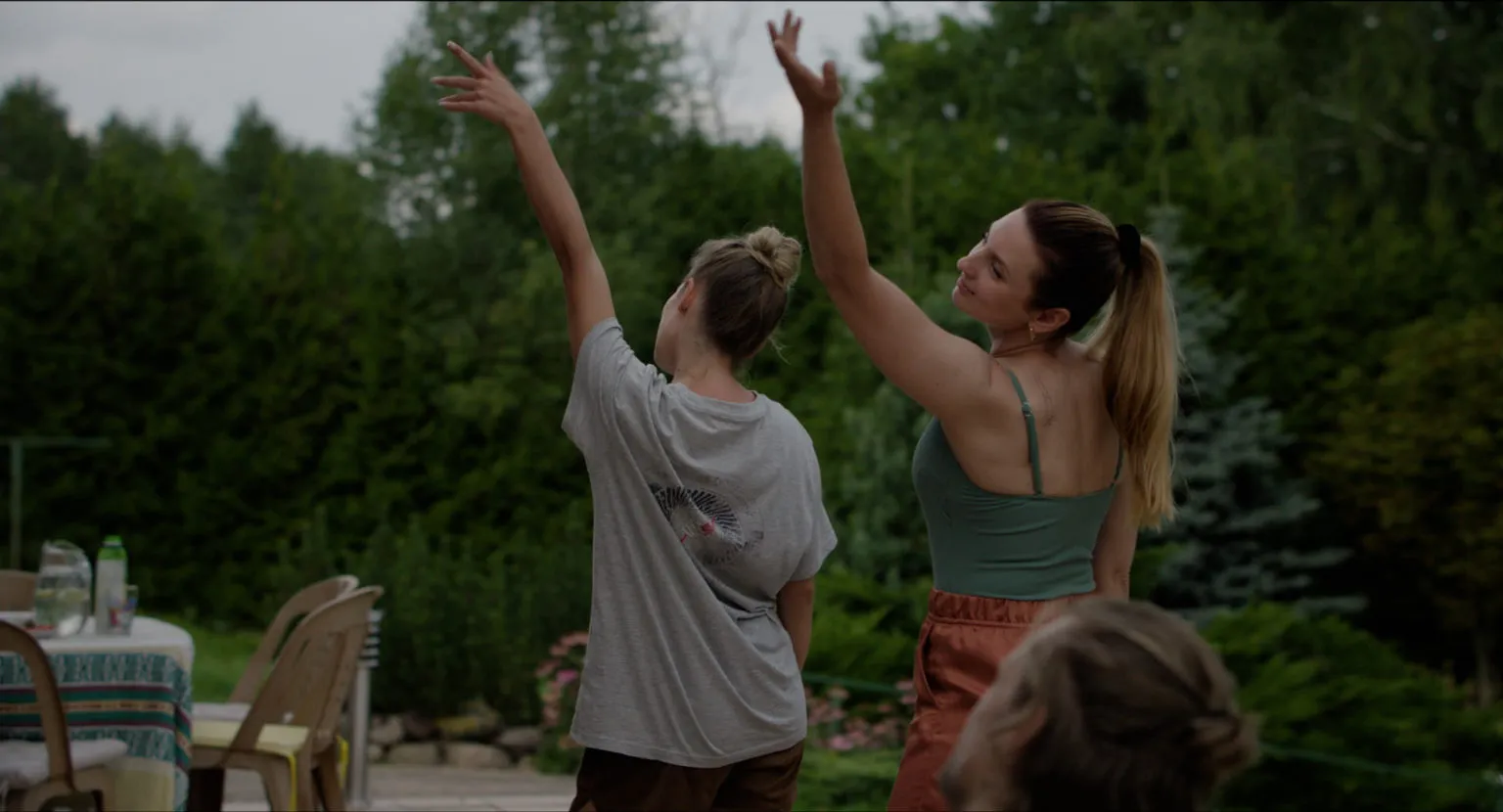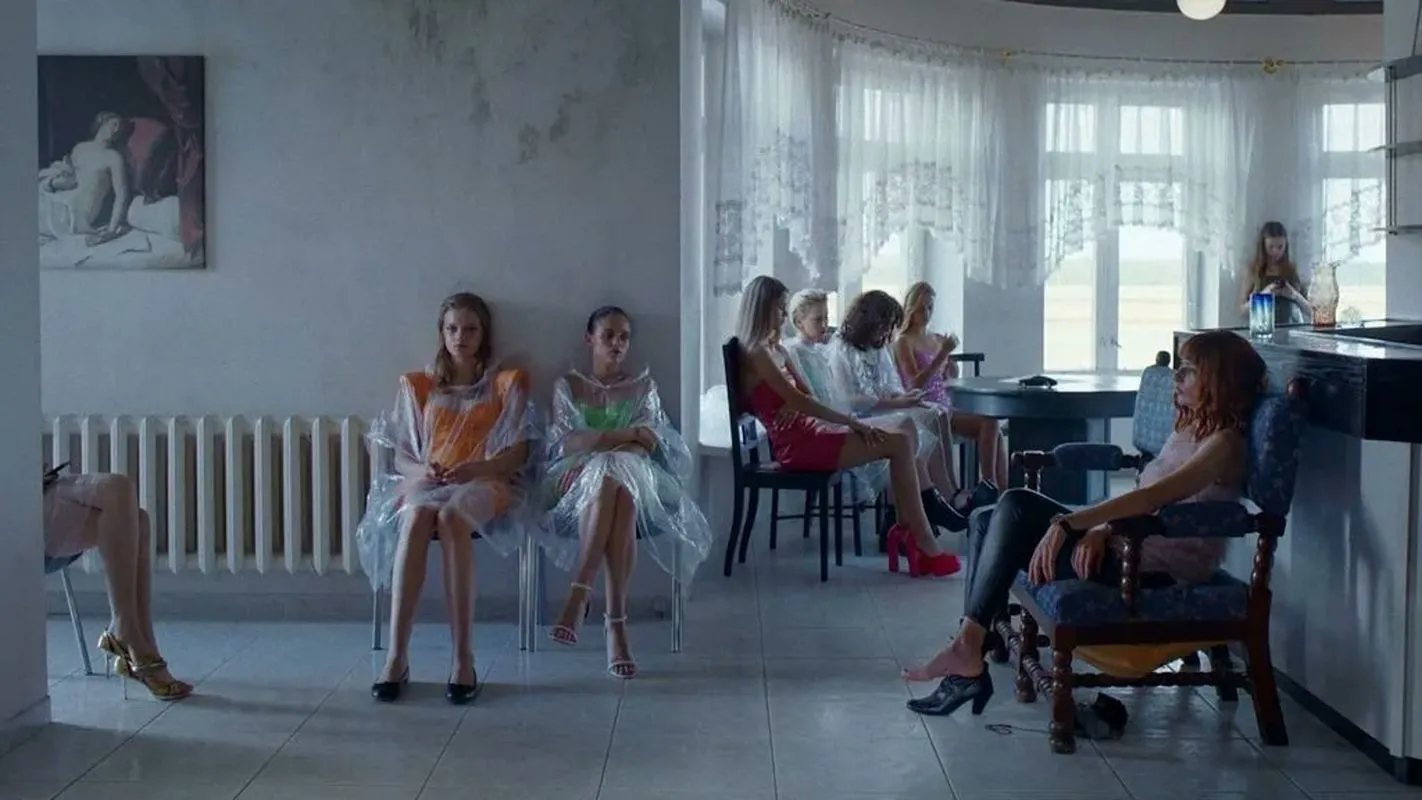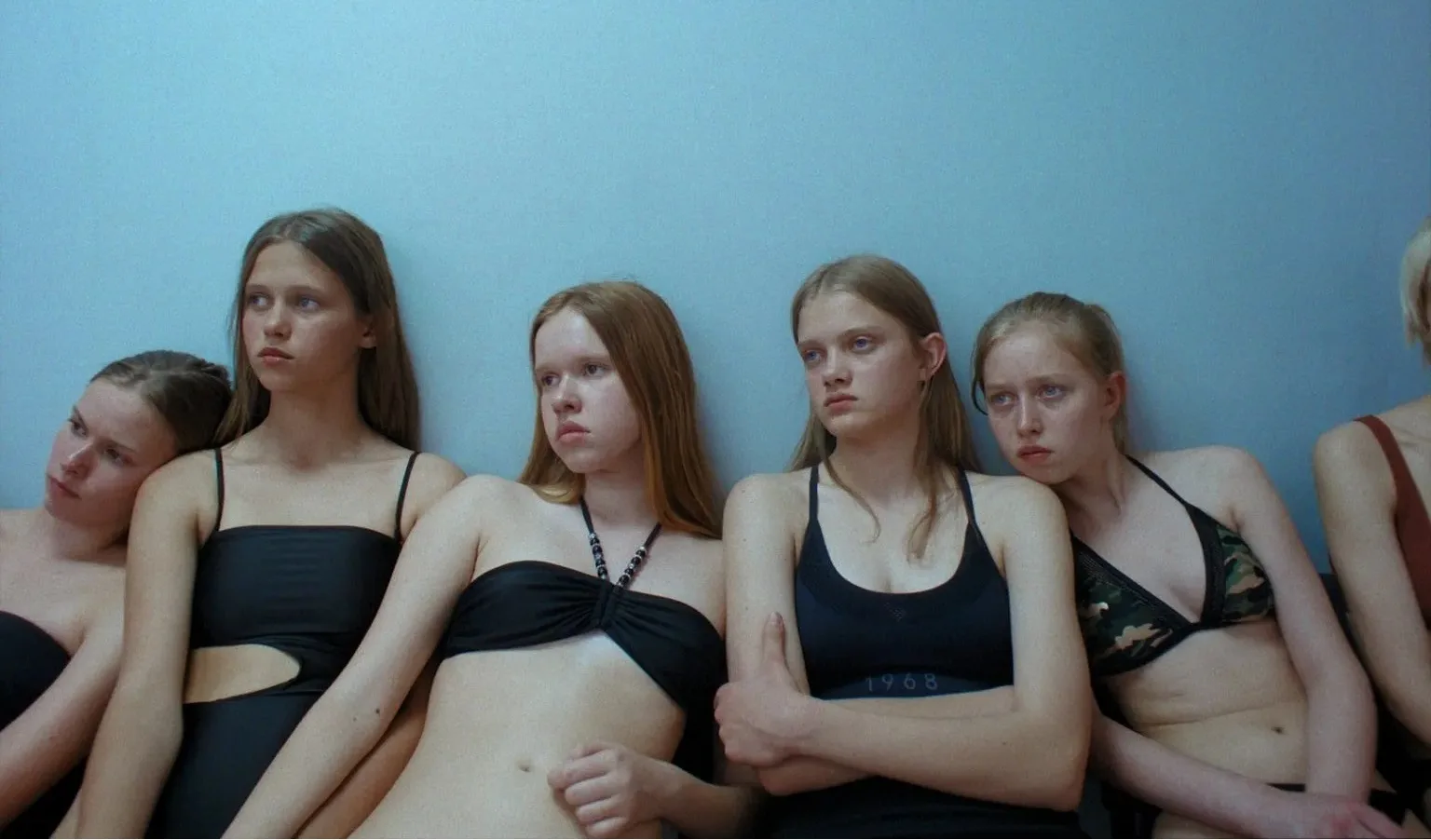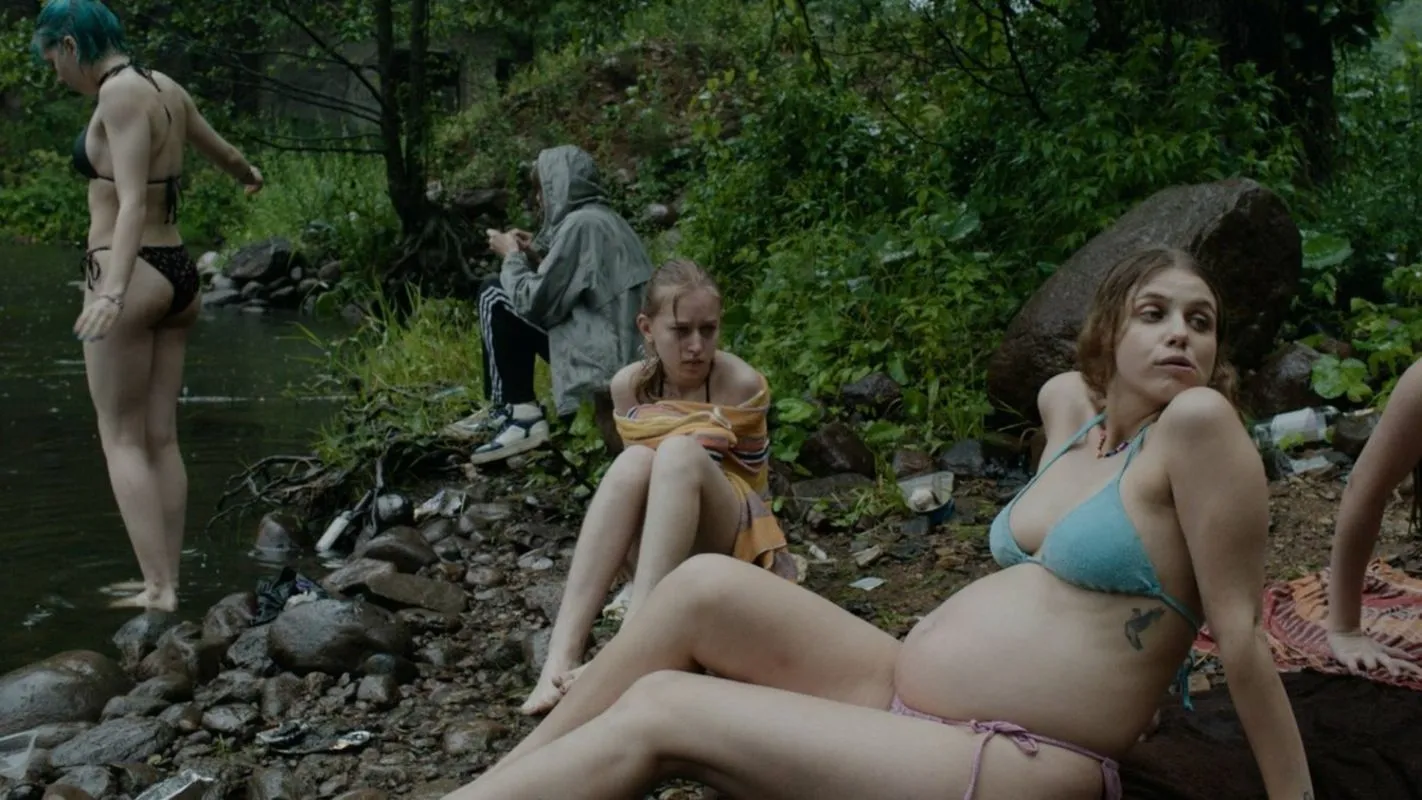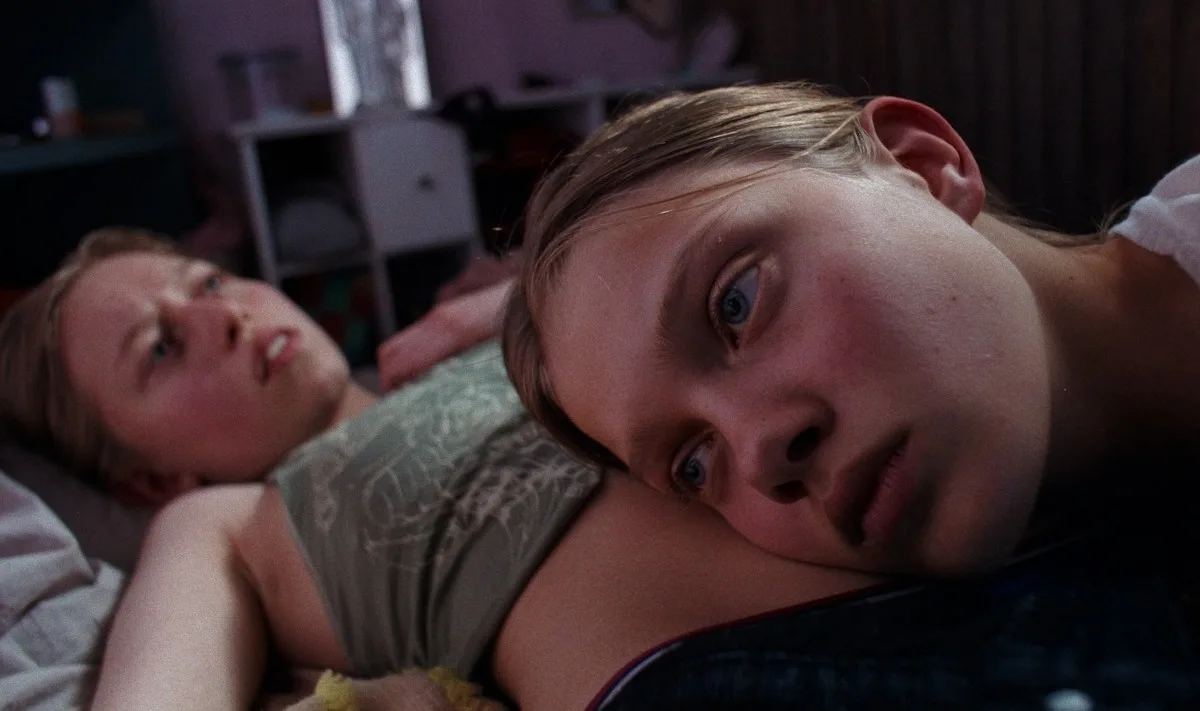In the dreary industrial town of Marija and Kristina, escape seems like a distant dream. Marija has just moved in with her grandmother after her mother leaves for pastures new.
A limp leaves the 13-year-old an easy target for bullies at her new school. Kristina lives a similarly tough life with her dad, who prefers boozing to parenting. Their paths first cross through a scuffle over stolen jeans, but a shared love of fashion and desire to break free of their bleak surroundings brings the unlikely friends together.
When a shady modeling agency rolls into town offering the promise of fame and fortune abroad, it seems like the chance they’ve been waiting for. But their excitement soon gives way to despair as they subject themselves to punishing regimes to meet impossible standards of beauty. Starving themselves thin and making themselves throw up, the pressures pile higher with each audition. As the audition looms, their desperate bids to earn money for photos see them exposed to exploitation.
Directed by Saulė Bliuvaitė, Toxic presents a gritty portrayal of navigating adolescence in a place with few prospects. Based on the filmmaker’s real experiences, it immerses us in the surreal yet blunt realities Marija and Kristina face daily. Winning the top prize at Locarno taps into growing awareness of these issues. While unflinching, Bliuvaitė avoids miserablism through naturalistic style and compassion for her young protagonists’ struggle to simply survive their formative years.
A friendship takes root
The gloomy town does little to lift the spirits. Towering industrial structures loom over streets lined with crumbling buildings. Marija scans her new surroundings with uncertainty. Having recently moved in with her grandmother, she struggles to find her place. A limp earned through no fault of her own makes her an easy target.
During her first days at the new school, Marija’s jeans are snatched from the locker room. She later spots them on Kristina, a tough girl known to play basketball with the local boys. Fiery and fearless, Kristina lives with her father, but their relationship seems strained.
One afternoon, a scuffle breaks out between the two as Marija demands her clothes back. From this inauspicious start, an unlikely bond begins to form. Both girls sense the other’s unhappiness, despite coming from different worlds.
Kristina acts tough but harbors doubts of her own. At home, she bears the brunt of her father’s frustrations when he isn’t drinking away his troubles at the bars. Marija receives more support from her grandmother yet struggles with isolation in their run-down home.
Though their backgrounds differ, a shared feeling of not fitting in brings the two teenagers together. In each other they find an understanding that offers a glimmer of hope in this dreary place calling itself a town.
Facing Impossible Pressures
The modeling class offers Marija and Kristina hope of escaping their bleak surroundings. But it also exposes them to punishing new pressures.
Under the glare of studio lights, the girls endure meticulous measurements and routines. The recruiter fixates on their frames, pushing them to lose even an ounce. Marija and Kristina throw themselves into punishing new diets as weights and sizes, not health, become the focus.
We witness the depths they sink to in attempts to achieve impossible standards. Making themselves vomit until they’re gaunt, or abusing laxatives, the film presents their extreme methods without a hint of glorifying such actions. Though hoping to succeed, the toll on their wellbeing is callously disregarded.
Bliuvaite shines a light on issues plaguing girls worldwide. How even the suggestion of fame and opportunity can distort natural adolescent development into an unhealthy obsession with one’s appearance. The routines mirror the toxic messaging narcissistic social platforms bombard youth with daily—that self-worth depends on conforming to unrealistic ideals.
Though in hindsight foolish, Marija and Kristina’s desperation feels tragically understandable, born of wanting control over at least one aspect of their lives. The director exposes such manipulative practices without accusation, her empathy reminding that impressionable minds remain vulnerable to exploitation by those tasked with guidance. The costs Bliuvaite depicts may seem remote to some, yet they represent real scarring for girls exposed to similar abuses of power.
Surreal Glimpses of the Soul
Vesta Matulytė and Ieva Rupeikaitė turn in brilliant performances that anchor Toxic. As Marija, Matulytė imbues a quiet soulfulness, her limp weighing heavy on a heart learning to embrace itself. Alongside a darker streak, Rupeikaitė breathes vivacious life into Kristina’s frenetic spirit, masking vulnerabilities with brash confidence.
The actors ground the film during its bleakest moments. When psychological pressures might overwhelm, their bond remains the viewer’s lifeline into two complex minds enduring hardships beyond their years. Nuanced emotion and authentic struggles shine through, a testament to both talent and Bliuvaitė’s exacting direction.
No less impressive is cinematographer Vytautas Katkus. Grim industrial ruins become not mere gloomy props but searing reflections of internal landscapes. Shooting handheld yet steady, he permits fleeting moments when logic falls away. A hollow locker speaks volumes, its apparition conjuring silent screams from Marija’s soul. In surrealism lurks aching truth, as distorted perceptions bare traumas too raw for conscious thought.
Through such ruptures, Bliuvaitė pulls back the curtain on fractured spirits seldom granted compassion. She taps into an intuitive realm where words fail yet images are cut straight to the quick. Not to shock, but to share glimpses of private agonies through a respectful, empathetic lens defining her debut’s compassionate power.
A Harrowing Climax
The modeling agency promises escape but ultimately proves another trap. Beneath promises of fame lurks a ruthless exploitation of vulnerable youth. Marija and Kristina subject themselves to grueling routines, yet success remains elusive as the recruiter’s priorities become clear—profit, not potential.
While some scenes court bleakness, Bliuvaitė ensures we grasp the real dangers the girls face. Starvation, bingeing, vomiting—all leave physical and mental scars rarely given screen time with such unflinching empathy. But her most harrowing climax sees Kristina swallow tapeworm eggs, desperate to keep slimming for her photoshoot dream.
As Kristina’s parasite begins taking hold, the director refuses viewers refuge from this grounded horror. Her slithering score conjures shuddering realism, reminding that girls worldwide still endanger themselves for fleeting approval. Where some films might glorify or shirk from consequences, Bliuvaitė pulls no punches—survival comes at a cost rarely conceded.
In laying bare such abusive power dynamics, she illuminates societal flaws that undermine girls’ wellbeing. Her authenticity stems from resolving to understand, not accuse—the recruiter proves complex, yet girls remain prey. Despite bleak fare, Toxic derives strength from acknowledging life’s difficulties with compassion. In tragic scenes we locate hope: the will to tell hard truths.
Room for growth amid gritty realities
Toxic handles tough topics with care, shining needed light on vulnerabilities exploitation thrives upon. But in prioritizing bleak accuracy over character arcs, some impact fades.
Marija and Kristina feel vivid, yet their inner lives stay shrouded. We grasp the pressures they face, yet their dreams, fears, and how they see a way forward remain vague. More could have been done, showing their resourcefulness amid restraints, gifting agency within hardship’s confines.
Comparisons arise to films portraying rebellious girls’ rites of passage, yet Bliuvaitė’s debut differentiates itself less. Bolder narrative risks could have strengthened its voice beyond issues its title announces.
Still, debut features seldom attain perfection, and Bliuvaitė displays skill deserving praise. Raw talent emerges that promise future works may burrow deeper psychologically while retaining gritty verisimilitude. One feels Toxic plants seeds its young director can cultivate into impacting narratives guiding viewers on life-changing reflections. Overall, it presents an honest and earnest debut, well deserving attention for issues it shines necessary light upon.
Glimpsing Hidden Struggles
Toxic straddles a difficult line, determined to shed light on real issues while crafting compelling characters. Bliuvaitė shows astute directorial promise, crafting bleak yet evocative vignettes of hardship and hope.
Matulytė and Rupeikaitė anchor the film, imbuing Marija and Kristina with depth that makes their struggles resonate. But at times realism overrides character exploration, weakening the emotional impact.
By shining a light on destructive beauty myths and lack of opportunities, Toxic sparks valuable debate. Yet granting the girls stronger inner lives could have amplified its message. The director displays a gift for authentic teenage portraiture; with further growth, her naturalistic eye and empathetic compassion may yet forge darker issues into even more impactful narratives.
For a debut, Toxic presents an unflinching yet thoughtful critique of vulnerabilities preying on youth. While uneven, Bliuvaitė establishes herself as an artist demanding attention for addressing societal flaws through intimate lenses, offering rare glimpses into hidden struggles.
The Review
Toxic
Bliuvaitė's unflinching directorial debut shines a necessary light on the real pressures facing girls, though an uneven balance of bleakness and character detracts at times from maximum impact. Promising talent and effort to engage pressing issues nonetheless imbue Toxic with worth as a compassionate glimpse into the suffocating challenges of adolescence.
PROS
- Gritty portrayal of pressures on girls' mental health and bodies
- Anchored by strong lead performances from Matulyte and Rupeikaite
- Captures bleak environments and surreal subjective perspective
- Sincere social commentary on exploitation of vulnerable youth
- Based on the director's real experiences, shining light on important issues
CONS
- Overreliance on despair risks weakening emotional resonance.
- Underdeveloped characters limit investment and impact.
- Story structure: unevenly balanced realism with character exploration
- Some elements feel like superficial poverty porn.









































